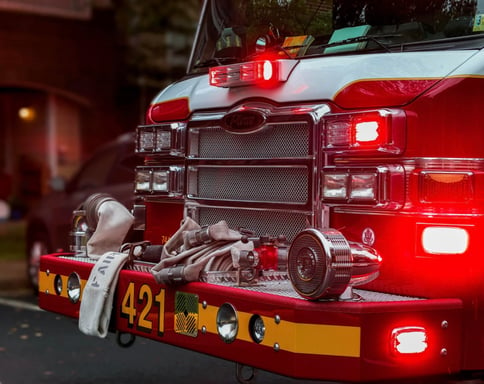Where is God in this?


The other night, I was called out to a cardiac arrest where the person didn't make it. The family was distraught, but nothing out of the ordinary. Their grief reaction seemed to be okay, considering the situation. As usual, I spent three hours with the family and left when everything settled down and the scene came to a natural conclusion.
When I returned to the office to do my report, I stopped and thought, "What was God doing here?"
Did I miss something? What was God doing in these people's lives before I got there? Had I missed something because I was only paying attention to the situation and not the Holy?
Anyone who has been on a 911 call knows emergency/crisis scenes can move at a frantic pace, and it's easy to get caught up in them. After a while, the most seasoned chaplain can get on autopilot. That's what I did that night. No, I don't believe I treated them badly, but as I step back, I realize I could have served them better.
In A Bamboo Grove for the Soul, Tom Becraft reminds us about keeping perspective when we go on calls.
"Therefore, “Where is God in this?” is a question not only for care recipients but also one that we ask ourselves. Our prayers are often need-driven. Indeed, circumstances may be so emotionally compelling that we leap to rescue or be rescued before harkening to the Ultimate Editor of our lives. Seeking the Sacred in each encounter is our first priority. Fixing is not."
As a type A, former wildland firefighter and EMT, my first instinct is to jump in and try to fix the problem. After many years as a chaplain, widening my tunnel vision and taking in the whole scene is still hard. When I do, I have noticed that God is not only the God of the incident but also the God of the periphery. He works in the hearts and lives of the family, victims, bystanders, and first responders.
So, how can you ensure what you are doing is in line with what God has been doing and is doing in the lives of those you are called to care for?
Listen for spiritual talk. When people are stressed, who they are on the inside tends to emerge. I listen to what people say and don't say. I also look at who they lean on in times of stress. When I'm in a home on an emergency call, I look for signs of faith on walls, bookshelves, and even those little magnets on the refrigerators.
Be aware that only some people you meet in the field share your same faith or worldview. I meet people who are very close to God and people who are very far from God. I have found we cannot approach them the same.
Before you engage, use a centering prayer, worship song, or meditation. When I get a chance, on my way to the scene, I put on some worship music to help me focus on the Holy. God is already there; I'm just invited to join Him in what He does.
Ask God what He wants you to do and who to pay attention to. In centering on God, ask for guidance in what He wants you to do.
As you approach the scene, please take a moment to take it all in to reduce your tunnel vision. This must be an intentional discipline that I must practice. My natural inclination is to leap before I look. If this is the same, make little reminders to help you see the broader scene. Having a care plan when you approach a scene is good, but be flexible.
Remember, God is working in people's lives before you get there. If you cannot recognize this, you may interfere with God's work in their life because you have an agenda to accomplish. You must use godly discernment to see what He is doing and how you are to be involved.
